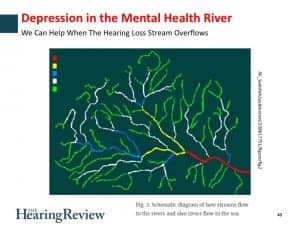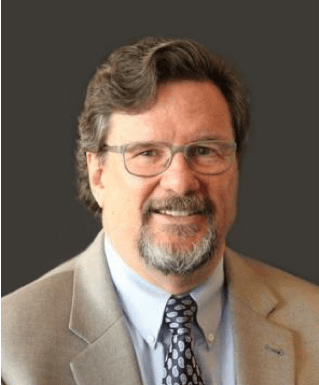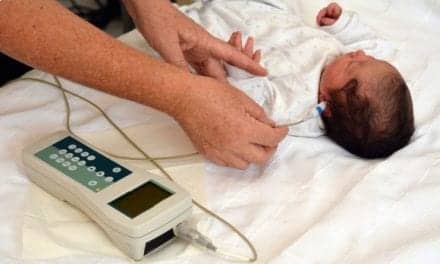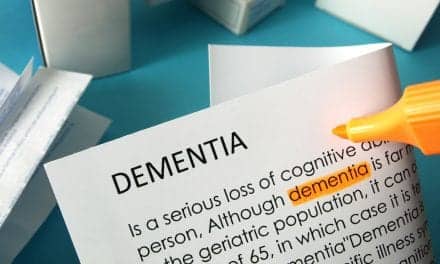Every week, hearing care professionals probably see several patients who they suspect are suffering from depression. In fact, depression is present in about 5-10% of the US population and can be very prevalent (40%) in some at-risk populations. But what really is depression, what are the risk factors, and what can hearing care professionals do about it?

In his webinar, Dr Bray describes how hearing care professionals can screen and provide assistance to those patients who may be suffering from depression.
Research continues to link hearing loss to depression, loneliness, and many other chronic diseases. It would seem logical that hearing loss might lead to social isolation, then to loneliness, depression, and an erosion in quality of life. However, as this webinar by Victor Bray, PhD, of Salus University points out, the problem may be much more complicated.
Sponsored by Hamilton CapTel®, this webinar offers an overview of important research into hearing loss, depression, loneliness, dual-sensory losses, and other chronic conditions. It is designed to give hearing care professionals (and interested physicians and healthcare experts) an update about current research into depression, hearing loss, hearing aids, assistive devices, and treatment options.
In this webinar, you will learn:
- Key findings and practical “take-aways” from the most important research studies related to hearing loss, depression, anxiety, and loneliness;
- The risk factors for depression in people who have hearing loss, and how amplification and assistive devices may (or may not) help patients with depression;
- How special cases—including sudden sensorineural hearing loss and balance disorders—may warrant special considerations regarding depression;
- Why hearing care professionals can and should screen for depression when risk factors are present.
To view this FREE 46-minute webinar, click here!
This webinar has also been summarized in a downloadable PDF with references. Click here to get to the download page.






Since I’ve gotten hearing aids I can tell a difference in my relationships with my children and husband. It’s no where near as stressfull with hearing aids, My depression an anxiety is better also. Wished I would have done it years earlier.
https://www.facebook.com/cr8iv.n8iv/
I would like to see every hearing care professional go through speech classes to learn how to talk to someone who cannot hear and speak to someone who has to read lips. They seem to have no concept of what it is like to be hard of hearing. I would also like for them to wear ear plugs for a week of classes. They need compassion, and experience to be able to relate to their patients.
Dear Eddie,
We pray you seek out and accept the help available.
Kindest Regards,
Jim
I’ve been deaf most of my life. What I consider deaf on the Audio chart I’m between 100,110 db I have hearing aids beltone 6000 just paid for new set. Wearing beltone all my life nothing else,it’s been a difficult life . I’m tired of dealing with people they denied my disability. I work for the state of Tennessee at present. Thier giving a really hard time.to the point I’m ready to quit my job 59 years I am I can’t deal with it anymore I go Eddie owsley jr or Edward I’ve try for my disability can’t get it. I just want to be alone some one please help ive got to point i refuse to wear my hearing aids around people. I got a small shed cabin Camden Tennessee real close to Tennessee river help me get thier please my health is failing high blood pressure. Nerves bad. From dealing with it every day. I need rest in the worst way thanks.
Hello Mr. Owsley,
I’m an audiologist in Western North Carolina. I wanted to reach out and make my office, Mountain Audiology, in Clyde available as a resource to you. Our office may be too far for you to travel to; if so, we can help locate an audiology practice closer to where you live.
Best Regards,
Emma Maxwell, MA
Hey Eddie
Have you found the help you were looking for? I see that Emma Maxwell has reached out to you . I would like an update if you were still in need of help . Dr Munson